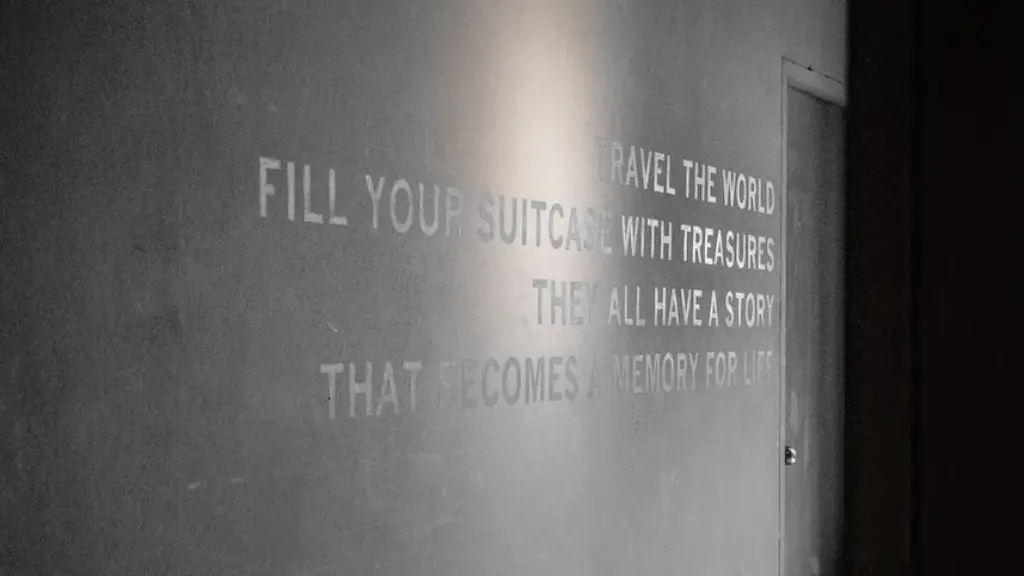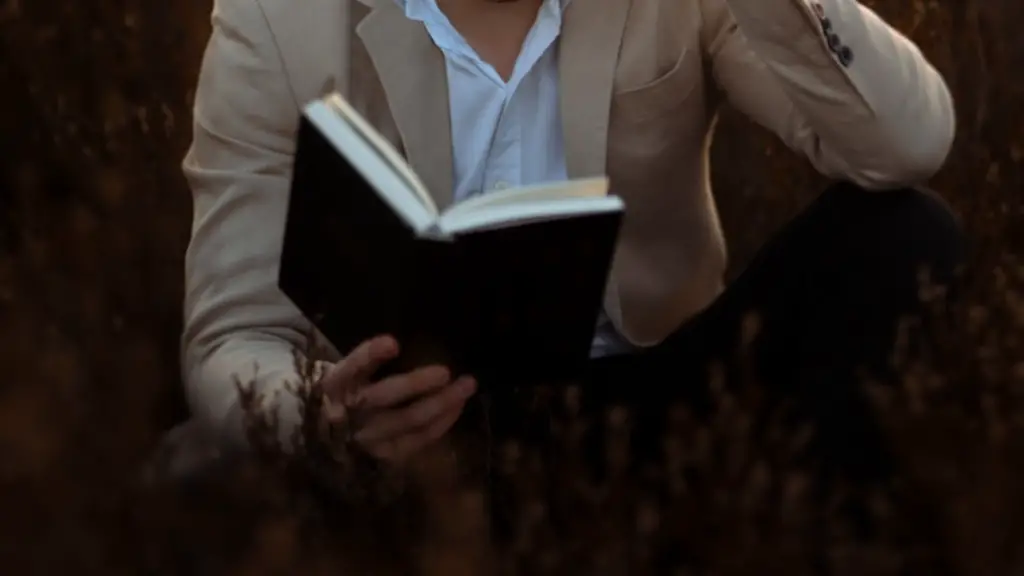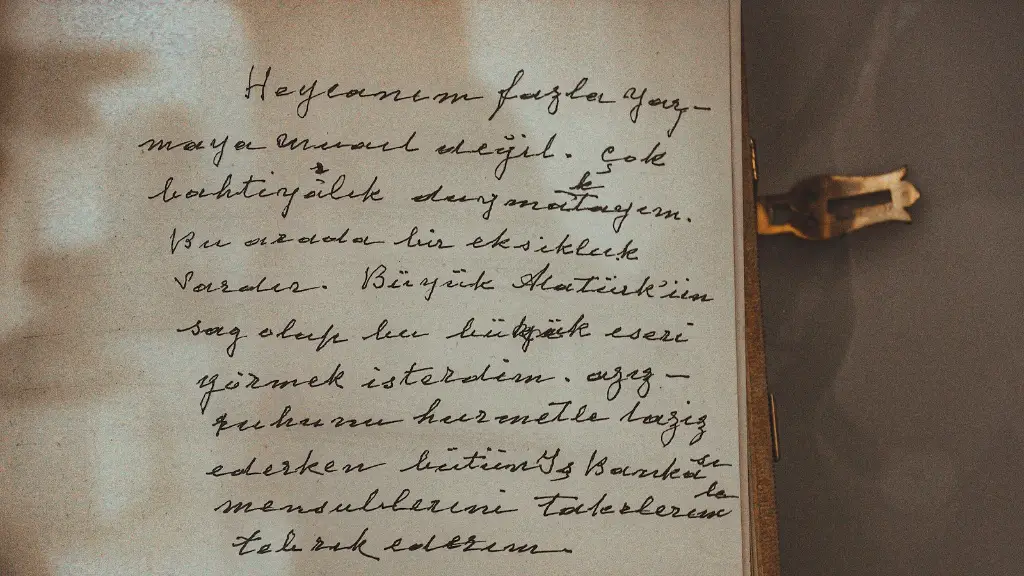Hailed as Robert Frost’s ‘most ambitious’ poem, “A Cabin in the Clearing” challenges our ideas about nature and civilization. Frost begins by exploring nature’s presence, then transitions to a discussion of a fragile compromise between nature and civilization. The poem ends with a resignation and acceptance of nature’s power over civilization. Throughout, Frost employs vivid imagery to illustrate his ideas and invites readers to reexamine their own beliefs.
The poem begins by sketching the landscape of a cabin in a clearing surrounded by trees. The natural elements begin to take over: moss grows lightly on the door, the winds stir, and a ‘spirit oozed’ out of the woods. Here, Frost suggests the power and vastness of nature, positioning nature as a regulating force, albeit an ‘evil’ one that ‘haunts’ the inhabitants of the cabin.
This presence of nature undermines notions of civilization’s mastery over nature. In the second stanza, Frost speaks to man ‘trying his luck’ in the clearing and acknowledges their presence, their attempt to shrug off nature, but it is with a heavy heart. Nature’s inevitable presence, Frost suggests, limits civilization’s control.
The poem’s third stanza posits a light at the end of the tunnel. While the cabin stands ‘a needful thing’, it is a compromise between nature and civilization, a sort of ‘peaceful truce’ he calls it, uniting both sides in only a small moment of time.
Frost closes the poem with resignation, as the cabin’s inhabitants resign themselves to nature’s overwhelming power. Frosts suggests that the “spirit” of the woods will always cause concern. Thus the poem reveals a difficult lesson: when nature and civilization are at odds, nature ultimately reigns supreme.
Interpretations
Frost’s “A Cabin in the Clearing” offers various interpretations for readers, from moral lessons to deeper reflection and analysis. On a symbolic level, the cabin’s clearing represents the equilibrium between nature and civilization. Even as the cabin exists as an expression of man’s mastery – a ‘needful thing’ – the clearing’s surroundings symbolize nature’s preeminence. Frost thereby illustrates his enduring idea that nature can’t ever be completely controlled or dominated by man.
The poem additionally reflects Frost’s view of moral life. The poem suggests that conduct should be governed by moral qualities such as patience and humility as well as civil order. By incorporating a peaceful balance between nature and human nature, Frost proposes optimism, even amidst potential darkness and sorrow.
The poem’s conclusion highlights both civilization and nature’s resilience. Nature, despite its potential malevolence, ultimately recedes and civilization stands firm. Yet, Frost’s poem also reflects the fragile nature of this equilibrium. Nature, ‘evil’ or not, is ever-present and must be respected.
On a personal level, Frost admits that although he is a master of words, nature will always contend with him. The poem demonstrates man’s powerlessness in caballing nature’s vast and uncompromising strength. Yet, there is a quiet beauty in the balance between nature and its surroundings. Thus, it is ultimately a melancholic yet graceful poem.
Literary Techniques
Robert Frost’s “A Cabin in the Clearing” employs a variety of literary techniques to express its themes of nature vs civilization, morality and personal powerlessness. Drawin on vivid imagery, the poem poem paints a vivid image of the cabin in the clearing, the sinister ‘evil spirit’ of the woods, and the cabin’s inhabitants’ sense of isolation. Additionally, Frost elegantly juxtaposes these images to create a powerful visual representation of the poem’s themes.
Frost additionally incorporates various literary devices, such as similes, personification and alliteration, to emphasize his ideas. A notable example of this is the image of the ‘sluggish evil’ that Frost associates with nature. That phrase itself suggests a certain power while also creating a sinister tone. Phrases like this further animate the poem and illustrate Frost’s themes.
Frost also uses repetition throughout “A Cabin in the Clearing” to emphasize his themes, as noted when Frost habitually refers to the clearing’s inhabitants as ‘they’. The repetition of this pronoun strengthens the dichotomy Frost creates between civilization and nature. Thus, even as his words are typically succinct and straightforward, Frost’s use of literary devices and repetition create a ‘masterpiece’ of craftsmanship.
Analysis
Robert Frost’s “A Cabin in the Clearing” is a meditation on the complex relationship between nature and civilization. Through the poem, Frost suggests that nature’s power can’t simply be shrugged off or disregarded. Yet by focusing on the negative ‘spirit’ of nature, Frost implies there is also a source of beauty and peace that should be respected, even if there is a sense of unease.
Frost’s use of language and imagery allows a more meaningful interpretation. There is a subtle beauty in the cabin, offering a juxtaposition between the cabin’s fragile presence and the immense power of nature. In Frost’s poem, nature is both a terrifyingly powerful force and an immutable companion we should accept and appreciate.
Moreover, Frost’s emphasis on morals and humility is especially insightful and relevant. The poem’s central message – that nature and civilization can exist in harmony – is one that is valuable today as we struggle to find peace in our relationship with nature.
In “A Cabin in the Clearing,” Frost’s use of vivid imagery, literary devices and repetition create an unforgettable and poignant poem. In just a few words, Frost manages to encapsulate the timeless struggle between nature and civilization and simultaneously reveals the complex beauty of that relationship.
Legacy
The legacy of Robert Frost’s “A Cabin in the Clearing” has endured for decades. The poem resonates with readers for its seemingly unpredictable turns and for its timeless message about nature and civilization, prompting reexamination and acknowledgement of nature’s power and beauty.
Since its publication, “A Cabin in the Clearing” has been included in numerous collections, earning Frost awards and praise. It has also been the subject of critical and scholarly analysis, inspiring readers and critics alike. The poem has been reproduced in many forms, including musical adaptations, film, and even art.
Moreover, “A Cabin in the Clearing” stands as one of Robert Frost’s most influential and widely discussed works. The poem speaks to the ongoing importance of Frost’s work and provokes readers to contemplate the comfortable balance between nature and civilization. Thus, the poem demonstrates Frost’s remarkable writing ability and mastery of language.
Context
Robert Frost wrote “A Cabin in the Clearing” as part of his collections, West-Running Brook, set during the late 1930s, at a time of widespread uncertainty due to economic depression, WWI and the New Deal. The poem dramatically contrasts with his earlier works, which focused on rural values, faith and personal identity.
In the poem, Frost captures a certain tension between nature and civilization, hinting at an impending civil unrest. Frost’s imagery of a cabin in a clearing, with trees inexorably encroaching, captures the feeling of personal powerlessness that many people felt during this time. The poem is a reflection on the struggle between the uncontrollable and stasis, the pain and fear of war, the fear of asserting control.
The poem also reflects Frost’s own experiences. He had grown up in a rural area, often exploring the woods around his family’s farm. As he grew older, Frost found himself increasingly torn between rural and city life. Eventually, Frost moved to England and finally, to Boston, and despite his success, he never quite belonged in either place.
The poem is thus an exploration of Frost’s own struggle and an exploration of an increasingly tumultuous period in American History. It serves as an ode to the struggles between nature and civilization, rural and city life and a eulogy to the power of nature, too overwhelming to be controlled.





